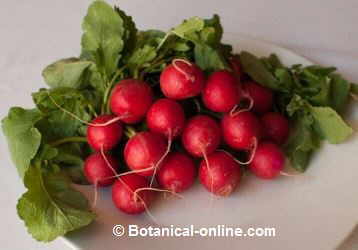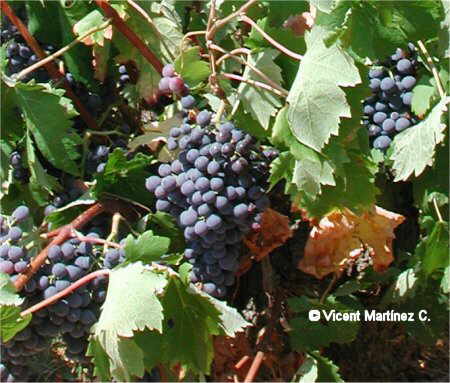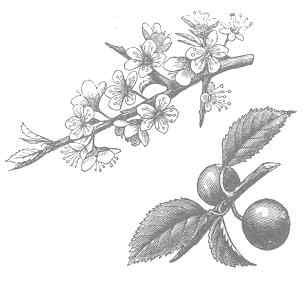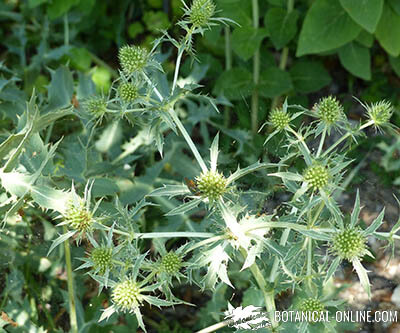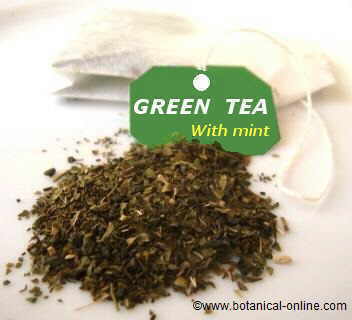Contents
Onion benefits
BENEFITS OF ONIONS
What are onions?
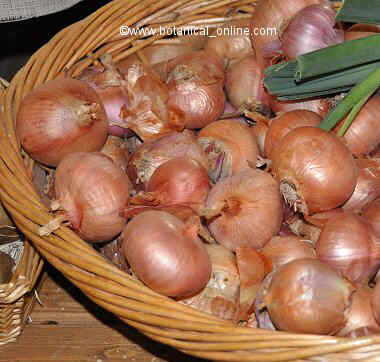
Photo of onions
Onions (Allium cepa) are vegetables.
Each onion is a rounded bulb buried underground, mostly whitish, although there are varieties with more and less intense purple hues.
Onions skin is the same color as the inside of the bulb if they are tender, or brown or even very intense purple if they are old.
They are composed of several layers from the skin to the interior of the bulb.
Their taste can vary depending on the variety from being soft and sweet, to very strong and spicy.
What are the main nutrients of onions? Onions composition
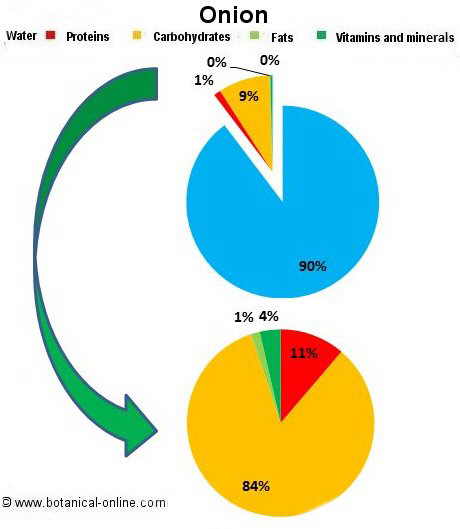
Main components of onions
As an energy source, 100 grams of onions provide 38 kcal.
Their proportion of nutrients are divided into:
- Almost 90% is water.
- 0.16% fat.
- More than 1% proteins.
- More than 8% carbohydrates.
- 1.8% fiber.
Minerals of onions
Onions are rich in potassium, magnesium, phosphorus and calcium.
Vitamins of onions
They contain a lot of vitamin C and vitamin B9 (folic acid), and small amounts of other B vitamins.
Nutritional characteristics of onions
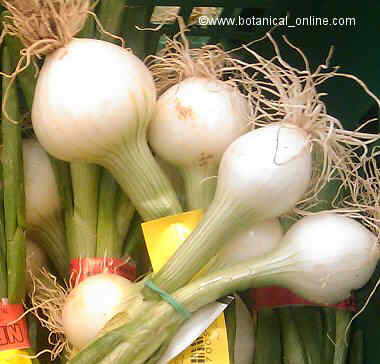
Photo of tender onions
- – Onion has a high water content.
- It provides little energy.
- It contains very little fat, although of high quality and with many health benefits.
- It has a very low protein content.
- It has a good carbohydrate, especially sugars.
- It possesses a moderatefiber content.
- It helps to remove toxins from our body, because it contains potassium.
- It helps maintain our brain function properly, because it contains phosphorus. In addition, together with calcium, it maintains the balance of the formation of strong bones.
- Because of its magnesium content, it helps the contraction and relaxation of muscles.
- For its content in B vitamins, particularly vitamin B9, it helps us to grow properly.
- It protects us from colds, helps heal wounds, toxins and aging, because it contains vitamin C.
Onion in the kitchen
![]() More information about other foods and nutrition.
More information about other foods and nutrition.
| *Related information: More information on onion |


